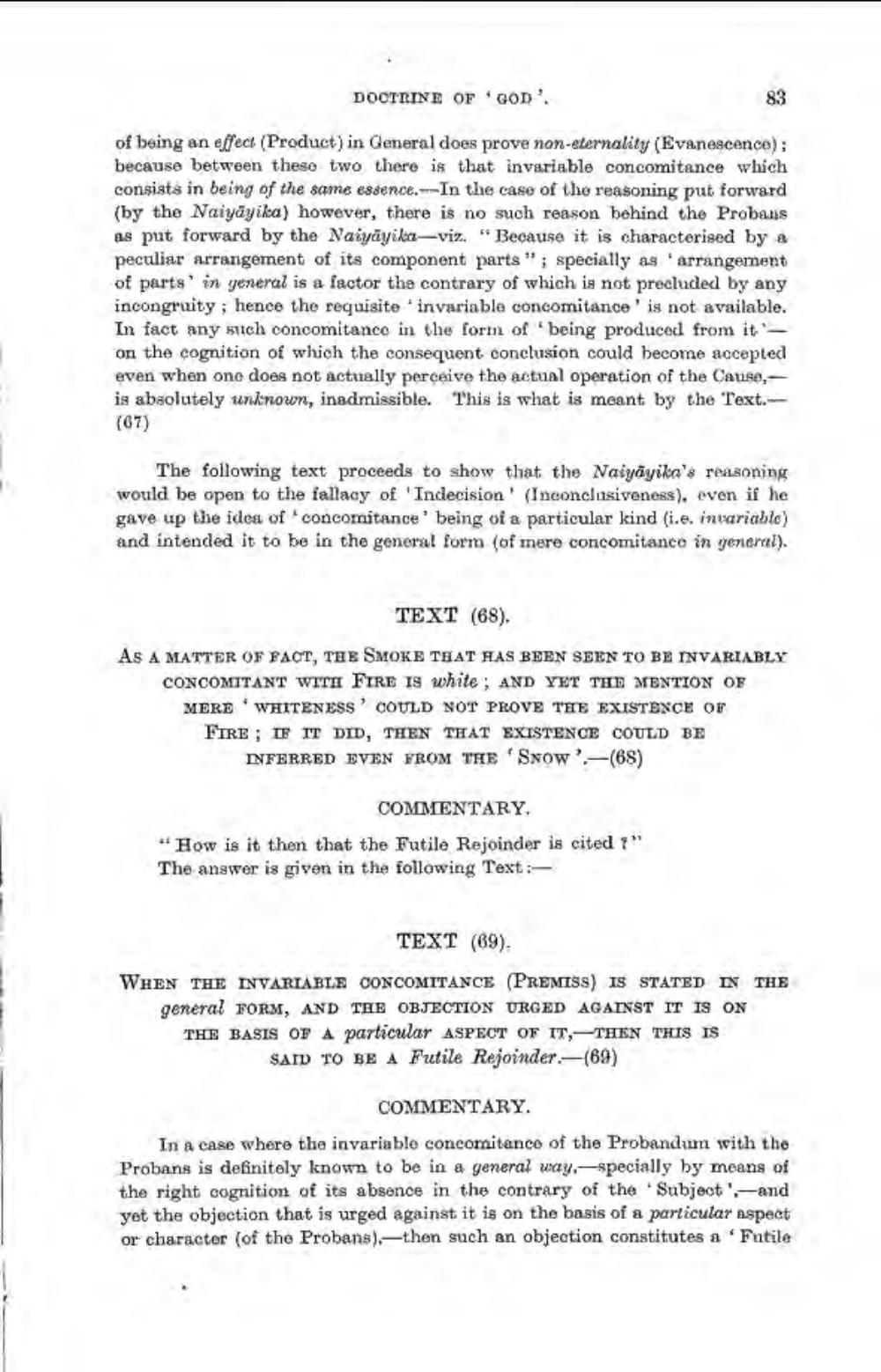________________
DOCTRINE OF GOD.
of being an effect (Product) in General does prove non-eternality (Evanescence); because between these two there is that invariable concomitance which consists in being of the same essence.--In the case of the reasoning put forward (by the Naiyāyika) however, there is no such reason behind the Probans as put forward by the Naiyāyika-viz." Because it is characterised by & peculiar Arrangement of its component parts"; specially as arrangement of parts in general is a factor the contrary of which is not precluded by any incongruity; hence the requisite invariable concomitance' is not available. In fact any such concomitance in the form of being produced from it'on the cognition of which the consequent conclusion could become accepted even when one does not actually perceive the actual operation of the Cause, is absolutely unknown, inadmissible. This is what is meant by the Text.(67)
The following text proceeds to show that the Naiyāyika's reasoning would be open to the fallacy of 'Indiecision' (Inconclusiveness), even if he gave up the idea of 'concomitance' being of a particular kind (i.e. invariable) and intended it to be in the general form (of inere concomitance in yeneral).
TEXT (68)
AS A MATTER OF FACT, THE SMOKE THAT HAS BEEN SEEN TO BE INVARIABLY
CONCOMITANT WITH FIRE IS white; AND YET THM TENTION OF MERE' WHITENESS' COULD NOT PROVE THE EXISTENCE OF FIRE; IF IT DID, THEN THAT EXISTENCE COULD BE
INFERRED EVEN FROM THE 'Snow'.-(68)
COMMENTARY. "How is it then that the Futile Rejoinder is cited ?" The answer is given in the following Text:
TEXT (69). WHEN THE INVARIABLE CONCOMITANCE (PREMIŠS) IS STATED IN THE
general TORM, AND THE OBJECTION URGED AGAINST IT IS ON THE BASIS OF A particular ASPECT OF IT, THEN THIS IS
SAID TO BE A Futile Rejoinder-(69)
COMMENTARY.
In a case where the invariablo concomitance of the Probandum with the Probans is definitely known to be in a general way.-specially by means of the right cognition of its absence in the contrary of the Subject'-and yet the objection that is urged against it is on the basis of a particular aspect or character of the Probans),-then such an objection constitutes a Futile




